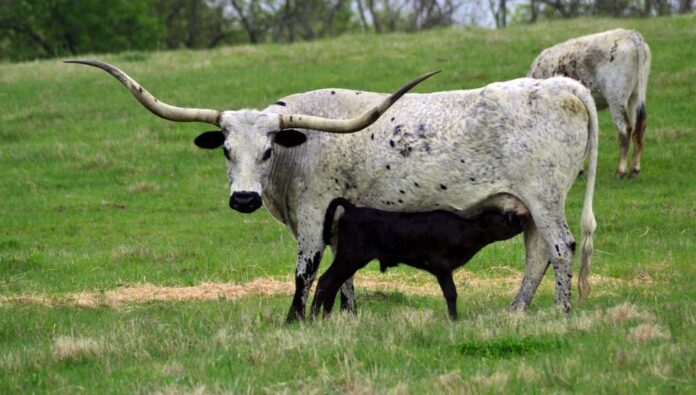Texas: In a startling development, the Department of Agriculture has confirmed cases of a highly fatal form of avian influenza, commonly known as bird flu, in cattle in Texas and Kansas. This marks the first instance of cows being infected with the virus in the United States. According to the agency’s announcement on Monday, it appears that the cows contracted the virus from wild birds, with reports of dead birds found on some farms. The revelation follows extensive investigations by multiple federal and state agencies prompted by reports of sick cows in Texas, Kansas, and New Mexico.
Samples of unpasteurized milk collected from afflicted cows tested positive for the virus in several instances. However, officials assure the public that the nation’s milk supply remains safe as pasteurization effectively eliminates viruses.
Read More: Thailand’s Humanitarian Aid to Myanmar Sparks Controversy Amid Criticism
“There is no concern about the safety of the commercial milk supply or any risk to consumer health at this stage,” stated the agency. External experts echo this sentiment. Dr. Jim Lowe, a veterinarian and influenza researcher at the University of Illinois at Urbana-Champaign, emphasized that the virus was only found in abnormal milk and posed minimal risk.
The recent cases of avian influenza in cattle come shortly after Minnesota officials reported the nation’s first detection of highly pathogenic bird flu in goats.
As of now, the flu samples from infected cows have not shown genetic mutations that increase the likelihood of human infection, according to the agriculture agency. Despite this, vigilance remains crucial as the global bird flu outbreak continues to devastate wild bird populations.
Stacey L. Schultz-Cherry, a virologist at St. Jude Children’s Research Hospital, reassured the public, stating, “There’s still no cause to panic.” She attributed the spread to “another spillover event due to contact with diseased wild birds.”
However, the cases raise concerns as cows were not previously considered susceptible to avian influenza. The outbreak, fueled by the H5N1 virus, first emerged in Europe in 2020, spreading from wild birds to farmed poultry and now to mammals, including cows.
Andrew Bowman, a molecular epidemiologist at Ohio State University, emphasized the need for caution, noting that infections in mammals provide the virus with opportunities to evolve. The possibility of a bird flu virus adapting to spread more efficiently among mammals, including humans, remains a concern for scientists.
The exact transmission route among cows is still unclear, leaving experts uncertain whether the virus is spreading directly from birds or among cattle themselves. Further investigations are underway to contain the spread and mitigate the potential risks associated with the outbreak.
Key Points of this news
- Confirmation of Avian Influenza in U.S. Cattle: The Department of Agriculture has confirmed cases of highly fatal avian influenza in cattle in Texas and Kansas, marking the first instance of cows being infected with the virus in the country.
- Transmission from Wild Birds: Infected cows appear to have contracted the virus from wild birds, with reports of dead birds found on some farms. Investigations were initiated following reports of sick cows in Texas, Kansas, and New Mexico.
- Safety of Milk Supply: Despite detection of the virus in unpasteurized milk samples from sick cows, officials reassure the public of the safety of the nation’s milk supply, as pasteurization effectively eliminates viruses.
- Low Risk to Public Health: While the flu samples from infected cows have not shown genetic mutations increasing the risk of human infection, vigilance remains crucial amid the ongoing global bird flu outbreak.
- Concerns and Uncertainties: The cases raise concerns as cows were not previously considered susceptible to avian influenza. Scientists emphasize the need for caution, as infections in mammals provide the virus with opportunities to evolve, potentially posing risks to human health.
- Ongoing Investigations: Further investigations are underway to determine the exact transmission route among cows and to contain the spread of the virus.
- Expert Reassurance and Caution: Experts reassure the public that there is no cause for panic but stress the importance of monitoring and understanding the evolving situation to mitigate potential risks associated with the outbreak.



